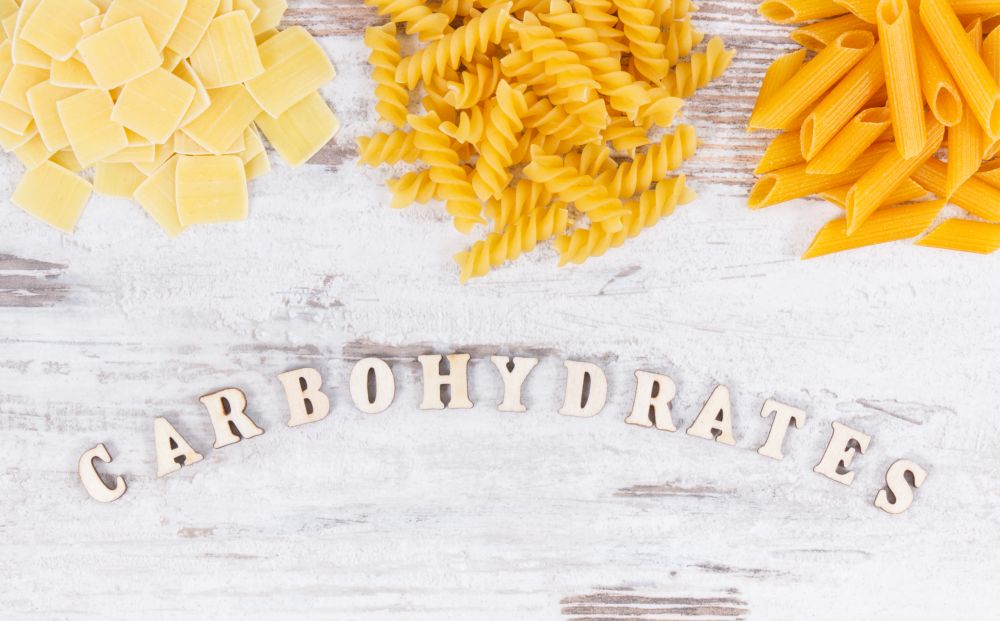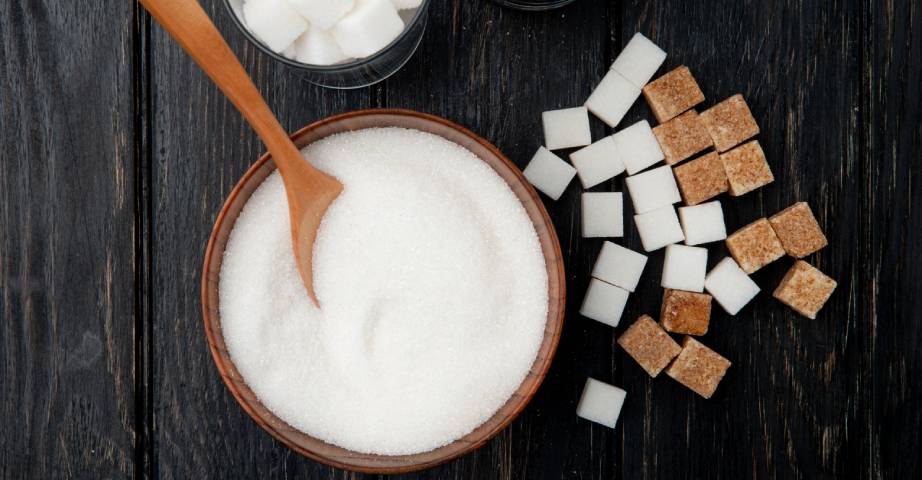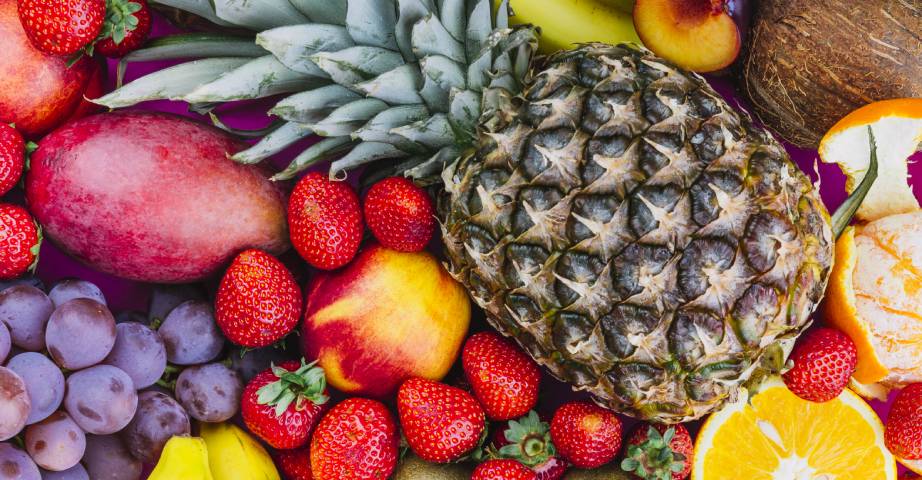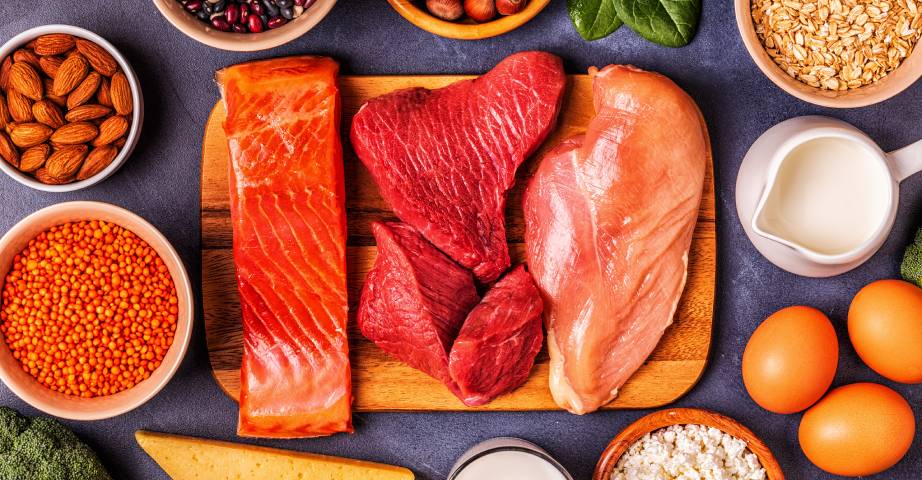Products containing carbohydrates. What to reduce on a low carb diet?

A low-carb diet limits energy intake from carbohydrates. What are these mysterious carbohydrates? Find out what foods contain it, what to eat on a low-carb diet, and what products to exclude from your diet.
What is a low-carbohydrate diet?
A low-carb diet is simply a diet that limits the intake of carbohydrates below the standards suggested by official institutions. The recommended amount of carbohydrates in the diet should provide between 45 and 65% of energy, so any diet in which carbohydrate products supply less than 45% of calories is a low-carb diet.
There is no single low-carb diet for everyone. Various popular eating plans fit into its pattern like the Kwaśniewski, Atkins, paleo and ketogenic diets. Each of them has different specific recommendations, but simultaneously the amount of carbohydrates is reduced and the amount of fat increased. However, some of them also increase the proportion of protein in meals, the most important thing is the ratio between carbohydrates and fat.
A low-carbohydrate diet may only reduce products rich in carbohydrates, or it may even exist as a diet without them.
There are three types of low carbohydrate diet:
- moderate low carbohydrate diet - provides less than 45% of energy from carbohydrates;
- low carbohydrate diet - provides less than 130g of carbohydrate per day;
- very low carbohydrate (ketogenic) diet - provides between 20 and 50 g of carbohydrate daily. It excludes all products in which carbohydrates predominate, therefore it is also called a carbohydrate-free diet.
- The number of carbohydrates that is considered to be the daily portion necessary for brain function, i.e. 130 g
- The number of carbohydrates at which most people enter ketosis (20-50 g), meaning that ketone bodies become the main fuel for the brain instead of glucose.
When planning a low-carbohydrate diet, it is crucial to know what carbohydrates are in the diet and which foods are low in carbohydrates. Ready-made low-carb diet recipes with already calculated fat, carbohydrate and protein content are also helpful.
Recommended products for a low-carbohydrate diet
What are carbohydrates?
Before we decide to limit or even exclude products containing carbohydrates, it is useful to understand what they are and what their role in the body is.
Carbohydrates are a very large and diverse group of compounds that are generally classified as simple or complex.

Examples of simple carbohydrates are:
- glucose and fructose - monosaccharides present as a single molecule; found mainly in fruit and honey,
- sucrose - a disaccharide made up of one glucose and one fructose molecule, obtained from sugar cane and sugar beet,
- lactose - a disaccharide made up of glucose and galactose, found in milk and dairy products.
The list of complex carbohydrates is long, but from a nutritional point of view, starch and fibre are the most significant. Starch is the reserve material of plants and is stored mainly in cereals and potatoes. Fibre is present in all plant products in smaller or larger quantities. While simple carbohydrates and starch are primarily current sources of energy (and when supplied in excess, they are converted into fat, which is a store of energy), fibre is not digested and does not provide calories. Instead, it has numerous health functions. The carbohydrates in the form of fibre regulate blood glucose levels, promote the excretion of excess cholesterol, regulate bowel movements, have a positive effect on the intestinal microbiome, and even prevent colon cancer. As fibre is not digested, it is not included in the carbohydrate count on a low-carbohydrate diet.
Is it necessary to avoid simple carbohydrates on a low carb diet?
Depending on the variant, a low carbohydrate diet requires a significant reduction or even exclusion of products rich in carbohydrates. It does not apply to fibre, which can be consumed in large quantities without including it as part of the carbohydrate intake. Considering only the amount of carbohydrates consumed, it does not matter whether they are simple or complex, but it has a huge impact on health. If you follow a healthy diet, it is not necessary to drastically reduce simple carbohydrates from fruit or dairy products, as they have high nutritional value. Nevertheless, their portions must be controlled, because even natural simple carbohydrates are harmful in excess, leading to fatty liver, disorders of glucose and insulin metabolism. On a low-carbohydrate diet, fruit and dairy products rich in simple sugars should be limited. In addition, all sweets, fizzy and non-carbonated drinks, which are the main sources of simple carbohydrates, should be avoided.

Carbohydrate products - what's high in carbohydrates?
The list of things that contain carbohydrates includes sweets in all forms, juices, drinks, all cereals and their products, e.g. bread, pasta and cereal; starchy vegetables - mainly potatoes and yams, but also pumpkin, beetroot, carrots, green peas, parsnips; pulses, e.g. beans, lentils, chickpeas, peas, fruit and dairy products - mainly milk and yoghurt..
Knowing what foods contain carbohydrates makes it much easier to compose a low-carbohydrate diet.
Knowing what foods contain carbohydrates makes it much easier to compose a low-carbohydrate diet.
| Food products | Serving size | Amount of carbohydrates |
| Cereal products | ||
| cooked rice | 80 g | 22 g |
| cooked pasta | 60 g | 10 g |
| cooked couscous | 75 g | 16 g |
| wholemeal bread | 40 g | 15 g |
| crispy bread | 13 g | 8 g |
| rice wafers | 8 g | 6 g |
| pita | 60 g | 33 g |
| rice wafers | 30 g | 8 g |
| chocolate cake | 150 g | 80 g |
| oatmeal | 35 g | 20 g |
| muesli | 50 g | 25 g |
| Starchy vegetables | ||
| boiled potatoes | 100 g | 15 g |
| yams | 70 g | 15 g |
| cooked beets | 120 g | 7,8 g |
| green peas | 100 g | 4 g |
| pumpkin | 100 g | 2,1 g |
| carrots | 100 g | 1,5 g |
| Fruit | ||
| orange | 150 g | 15 g |
| banana | 100 g | 20 g |
| dates | 75 g | 55 g |
| apple | 150 g | 15 g |
| kiwi | 65 g | 8 g |
| melon, watermelon | 70 g | 5 g |
| grapes | 70 g | 12 g |
| strawberries | 60 g | 3 g |
| berries | 60 g | 8 g |
| Legume seeds | ||
| cooked beans | 75 g | 13 g |
| cooked lentils | 100 g | 19 g |
| chickpeas, cooked | 100 g | 11 g |
| cooked peas | 100 g | 24 g |
| Dairy products | ||
| milk | 220 ml | 11,3 g |
| natural yoghurt | 210 g | 10,7 g |
| fruit yoghurt | 125 g | 17,7 g |
| natural skyr | 200 g | 7 g |
| fruit gherkin | 200 g | 20 g |
| quark | 100 g | 3,7 g |
| yellow cheese | 80 g | 1,8 g |
| Sweets, salty snacks, drinks | ||
| popcorn | 100 g | 50 g |
| crisps | 100 g | 40 g |
| salty sticks | 20 g | 13 g |
| scoop ice cream | 55 g | 14 g |
| orange juice | 250 ml | 25 g |
| energy drink | 250 ml | 30 g |
| fizzy drink | 330 ml | 33 g |
| chocolate wafer | 50 g | 28,9 g |
Low carbohydrate foods - what to eat on a low carb diet?

We already know what products contain carbohydrates. But what foods are low carbohydrate ones? Fats (e.g. rapeseed oil, olive oil, linseed oil, coconut oil, butter contains traces of lactose), meat and fish all have no carbohydrates of any kind. On a low-carbohydrate diet, you can eat all kinds of meat and fish, without paying attention to the amount of fat they have. Low-carbohydrate foods include eggs, yellow cheeses, fatty cream, fat cottage cheese, nuts, seeds, and avocados. Most vegetables are low-carbohydrate vegetables. These include green leafy vegetables (including lettuce, rocket, spinach), cruciferous vegetables (broccoli, cauliflower, kale, botany) and any vegetables that grow above ground. Fruits recommended on a low-carbohydrate diet are mainly small berries - strawberries, raspberries, currants, blueberries - as they contain fewer carbohydrates than other fruits.
